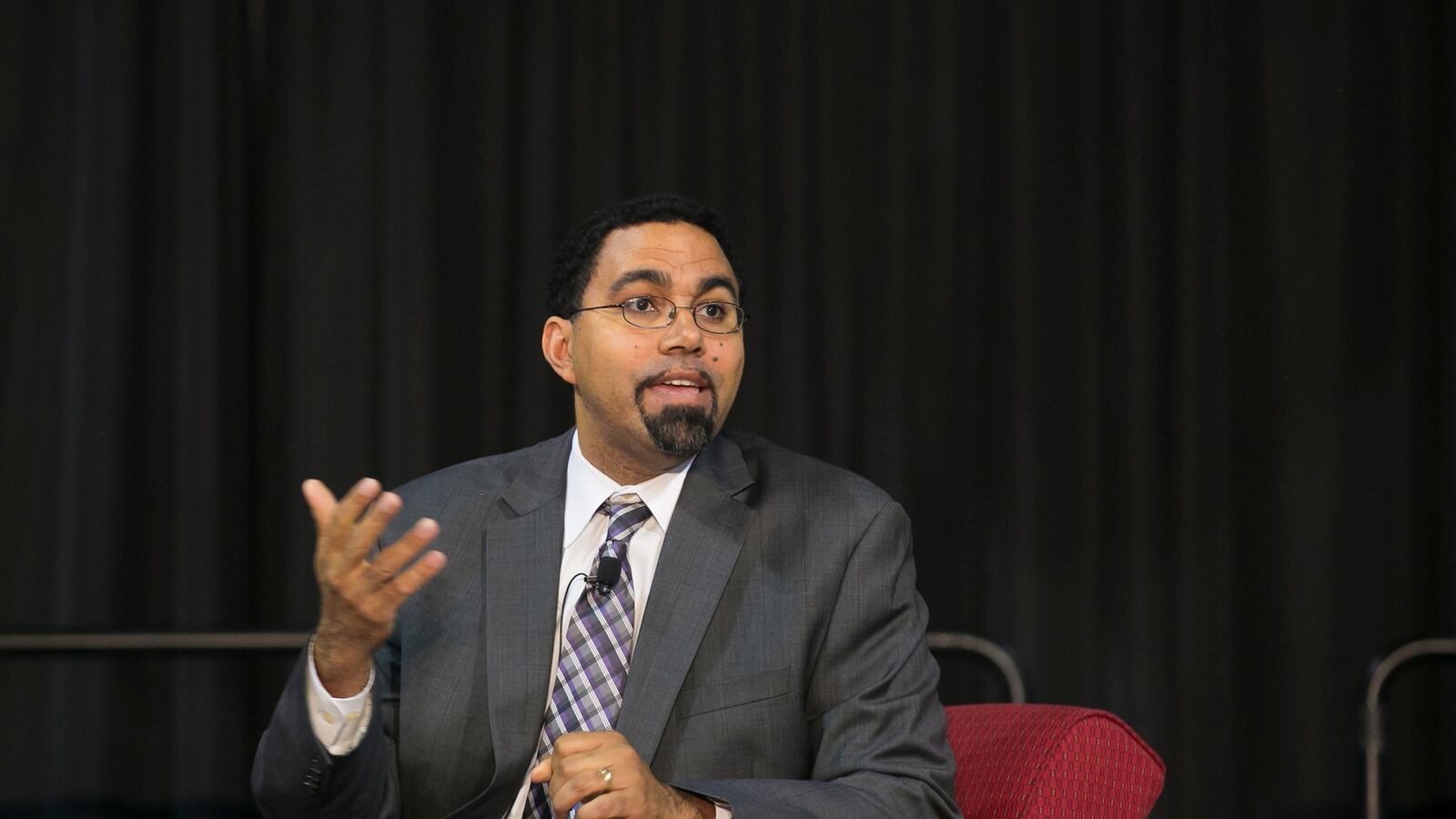John King wants the nation’s schools to be less segregated — but there’s a limit to what he can do about it.
That was the new federal education secretary’s message on Monday in a presentation to journalists, where he said local policymakers are the ones with the real power to integrate schools.
Speaking in Boston, he ticked off a number of strategies that states and districts can use to promote integration, all of which have been added to their toolkit since he took over the federal education department earlier this year. They can apply for new federal grants aimed at bringing high- and low-income students into the same schools; they can count student diversity when they rate schools; and, soon, they might be able to use federal funds to treat integration as a school improvement tool.
But they don’t have to.
“We can incentivize at the federal level, but these are local decisions,” King said during a speech at the Education Writers Association’s national conference.
The incentives include $120 million that the Obama administration has proposed giving districts that choose to reduce the density of poor students in individual schools. That initiative follows a similar effort that King launched in New York two years ago when he was the state education chief.
In New York City, the education department won several of the state integration grants, which totaled $25 million. But while some parent leaders are hoping to use the money to develop district-wide enrollment systems that will reduce school segregation, officials have yet to back any sweeping changes.
Instead, Chancellor Carmen Fariña has said she wants schools to become more integrated “organically,” rather than as a result of city mandates. The city has allowed a handful of schools to adopt admissions policies aimed at integration, but is focused on helping schools attract diverse students with new programs.
Like King, Fariña has suggested that she has finite ability to force integration. But whereas King is limited by federal law and court rulings that restrict the government’s power to desegregate schools, Fariña has pointed mainly to parent opposition.
“What I believe in and what I can convince other people to believe in are not necessarily the same thing,” she said last year.
On Monday, King suggested that local leaders can make a difference. He emphasized that school segregation is not inevitable, and that it stems as much from public policy as from parents’ preferences.
“I think one of the challenges we have is that, in some communities, folks start to think of the isolation by race and class in public schools as just a fact of life over which no one has any control,” he said. “But the reality is that segregation is a result of policy choices.”


